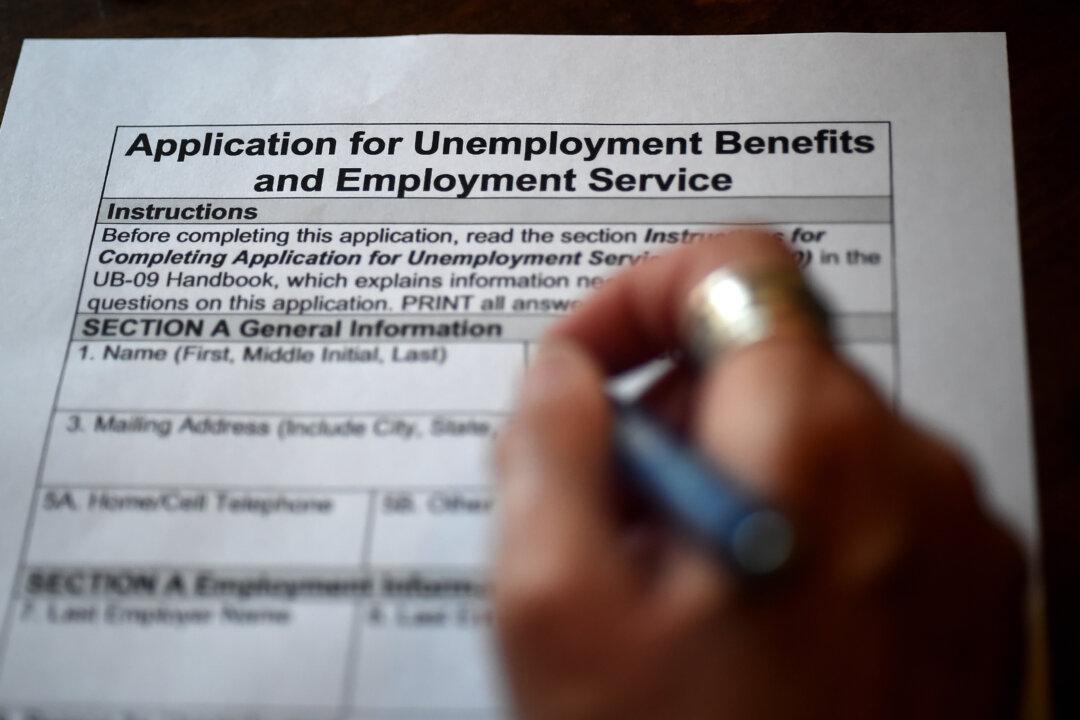Around a dozen states have begun paying out the extra $300 per week in unemployment benefits that are part of the recently enacted COVID-19 relief bill, with most states poised to join them by mid-January.
Jobless Americans in Arizona, California, Delaware, Idaho, Louisiana, Massachusetts, Minnesota, Mississippi, New York, North Carolina, Tennessee, and West Virginia can expect to receive the unemployment boost soon as these states have started making payments as of Tuesday, according to a tracker.





